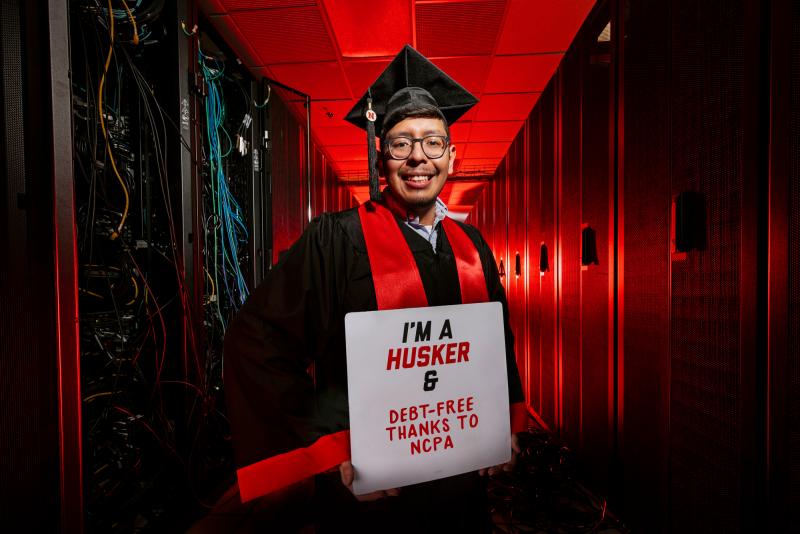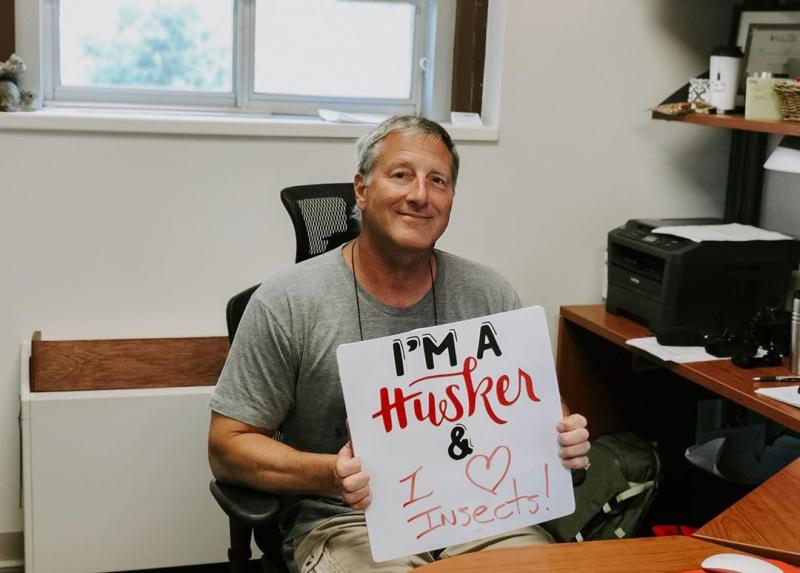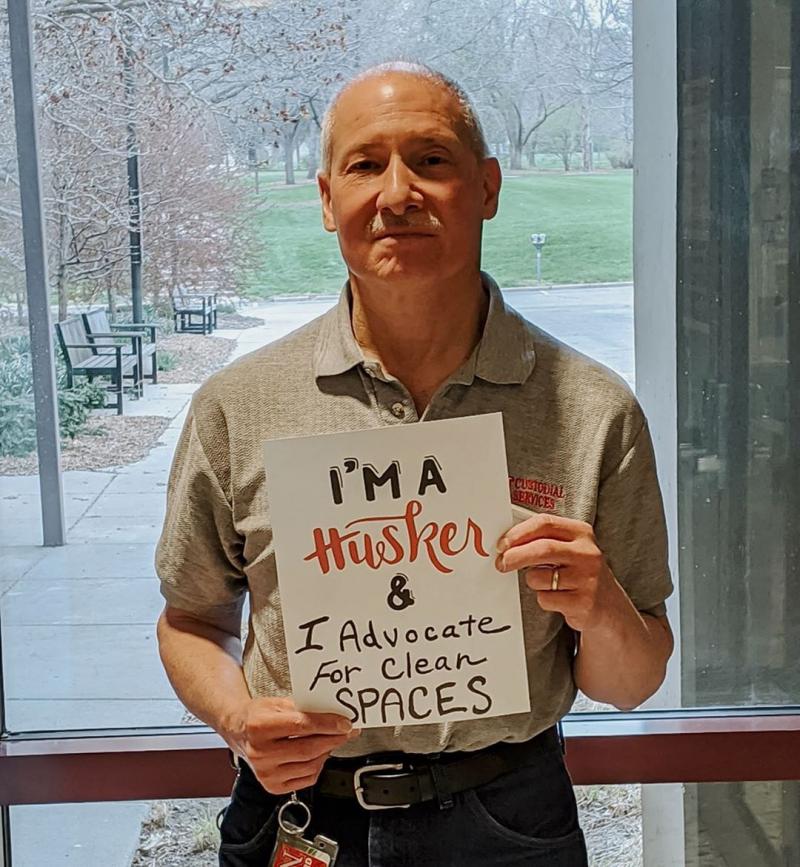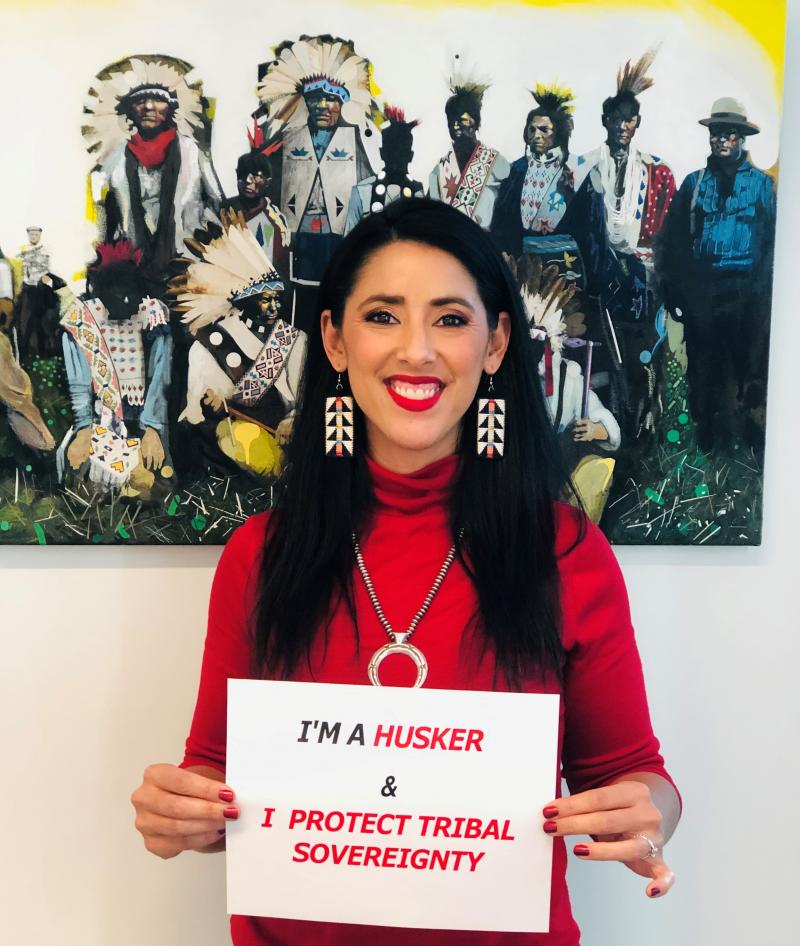Bryan
Computer Science and Mathematics · Grand Island, Nebraska

As a first-generation student from an immigrant family, Bryan didn’t always see college as accessible. But thanks to the financial assistance of scholarships from the Nebraska College Preparatory Academy (NCPA) and the support of his loved ones, this weekend Bryan will accomplish his goal of graduating from the University of Nebraska-Lincoln.
Bryan first became a part of NCPA in middle school. He had seen his older brother succeed in college through NCPA and knew he wanted to follow in his footsteps. As he went through high school and prepared for college, the NCPA community was there for him every step of the way.
“I personally describe it as a second family,” Bryan said. “There are students from every grade level from grade nine all the way up to seniors in college.”
Bryan’s second family at NCPA showed him that it’s OK to ask for help. When he was struggling in classes or grappling with making big decisions, he always knew that he could find his answers somewhere in the university community. Whether it was through a study session at a resource center or a friendly face at NCPA, he was able to solve his problems by seeking help.
“If you seek out help, you will eventually find the help that you need,” Bryan said. “And that help is going to go a long way — whether you see that now or later.”
As he finishes up finals and gets ready for graduation, Bryan reflects on the gratitude that he has for the people who have helped him get to where he is. He’s especially proud to show off his accomplishment to two of the most important people in his life — his mom and dad.
“I think graduation is so important to me because my parents never had this opportunity,” Bryan said. “They weren't able to go past like eighth or ninth grade, and it wasn't like they had a choice. Even if they wanted to go to school, they had to stop going to school in order to work. And so being the second graduate in my family...I feel like because of them, they gave me the opportunity to do what I want to do and pursue my dreams.”
Tom
Associate Professor of Entomology · Waverly, Nebraska

Everyone has something they're passionate about. For associate professor Tom Weissling, that something happens to be so small that most people don't even notice it during their day-to-day lives: bugs. Though he's now an associate professor of entomology, Tom didn't always have a keen interest in insects. In fact, during undergrad, he took his first entomology class only because he was interested in fly fishing. Three degrees in entomology later, Tom can thank his hobby for helping him find his passion. Most of Tom's appointment as a professor is focused on teaching. While he teaches higher-level entomology courses to students in the program, he's also taught introductory-level insect biology classes to students of all academic majors. In those courses, he uses his enthusiasm for the subject to show students all the great things insects can do, like pollinating and breaking down dead plant material. Many students start the course with an aversion to bugs, but by the end they leave it knowing all the good insects do. "Even if you just reach one person every now and then, that's a huge win for me."
Read all faculty storiesBill
Custodial Staff · UNL

As members of the UNL custodial staff, Bill and Crystal's main focus is to clean and maintain the university's facilities. But while that may be their main mission, one of their favorite aspects of the job is interacting with the students, faculty and staff that they serve. Bill is responsible for a section of Hardin Hall and Crystal is stationed in Morrill Hall. After working in the halls for some time, the two have made connections with those they see during their shifts. From friendships formed with professors they see every time they take a coffee break, to conversations shared with students about their families and studies, the pair have grown close people that frequent their buildings. "I've made some wonderful, wonderful relationships," Bill said. "And I do miss that right now because nobody's here." Now that access to campus is limited, Crystal and Bill still report for work at the same hours each day, but some of their old tasks are missing. With only employees that provide necessary support services entering campus, everyday practices like cleaning offices and wiping toddler-sized handprints off of the exhibit glass at Morrill Hall are no longer necessary. But the most notable thing that's missing is the students, faculty and staff that have become their friends. "When we're busy, when we interact with people...that's our normal," Crystal said, "This is not normal." Bill and Crystal often interact more with the communities in their halls than they do with their own coworkers in the custodial services department. While this time might be lonely, strange, and even make them nostalgic for their old normal, they know that it won't always be this way. "I really have faith that we're going to get through this," Crystal said, "And we'll be back to seeing those little kiddos and the big kiddos coming into our building."
Read all staff storiesKatie
Class of 2001 · Lincoln, Nebraska

Katie uses her legal expertise to help Native American tribes. After graduating from the University of Nebraska–Lincoln in 2001, she went on to Columbia Law School. Now, Katie is a part of the American Indian Law and Policy group at Akin Gump Strauss Hauer & Feld.
Katie represents Native American tribes across the country and has expertise in the area of Indian water settlements. She always knew that she wanted to work on behalf of tribal nations. As a member of the Ponca Tribe, Katie was especially inspired by how passionate her family members were about leading and protecting Nebraska’s first peoples.
“Having my family members be very involved in our tribal government throughout my life...my great grandfather was the chief of my tribe, my grandma and aunt were on the tribal council, my mom is the Director of the Nebraska Commission on Indian Affairs. Just seeing all of these role models in my life that were very much involved and passionate about protecting tribal sovereignty and working on behalf of Native people — that advocacy was ingrained in me from a very early age,” Katie said. “I think I always knew that was where I wanted to go and what I wanted to do.”
Aside from her many water settlements, one of Katie’s proudest moments as an attorney was when her pro bono work helped to place a statue of Nebraska’s Chief Standing Bear in the U.S. Capitol.
“Now when people go into the United States Capitol, they will see a Ponca leader that is honored there. It's very close to my heart and touching that there will be hundreds, thousands, millions of people who go on Capitol visitor tours and they will see a tribal leader from my tribe and try and learn more about our history,” Katie said. “Also, it is important to teach my children to be proud of who we are and where we come from — they can see that there's one of their tribal leaders in the United States Capitol who is honored and respected.”
